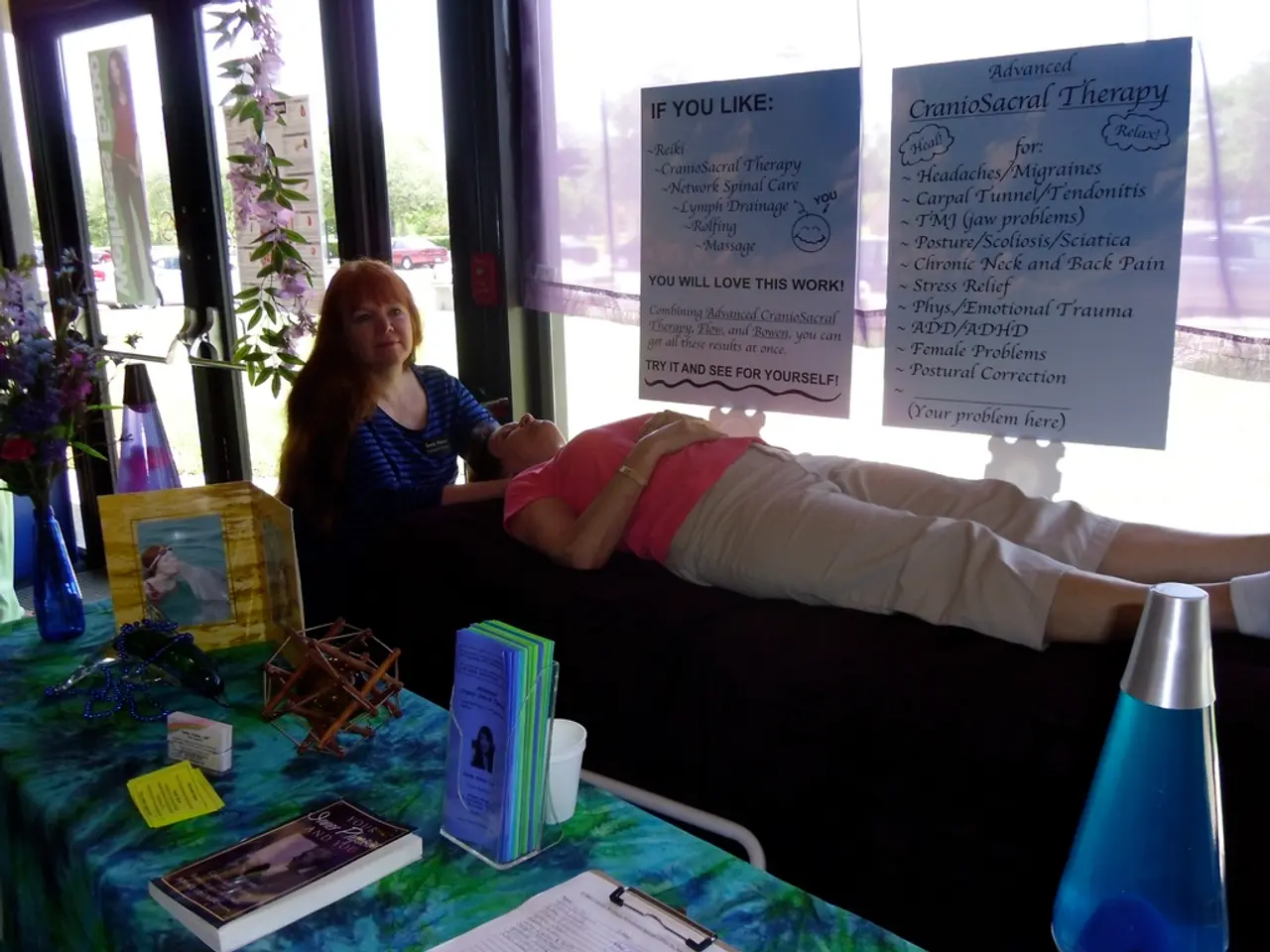Enhancing women's mental well-being through extensive psychological assistance
## Empowering Women Through Specialised Therapy
In the realm of mental health services, therapy for women's issues stands out as a crucial resource for addressing the unique challenges faced by women. This form of psychotherapy is designed to cater to the specific needs of biological female adults, taking into account factors such as social roles, cultural expectations, hormonal variations, and gender-related issues.
### Validation and Empowerment
One of the key benefits of women-focused therapy is the validation and empowerment it provides. Therapies like trauma-informed care validate women's experiences, particularly sensitivity, which is often misconstrued as a weakness. By recognising and embracing this sensitivity, women can transform it into a strength, enhancing their intuition and empathy.
### Accessible Psychotherapy
Modalities such as Cognitive Behavioral Therapy (CBT), Dialectical Behavior Therapy (DBT), and interpersonal therapy are effective for conditions like anxiety and depression, which disproportionately affect women. These therapies offer women accessible and effective solutions to manage their mental health.
### Support Networks
Group therapy settings tailored to women provide a supportive network, fostering connection and understanding among participants. This sense of community can be invaluable in the journey towards mental wellness.
### Differences from Traditional Therapy
While traditional therapy can be effective, therapy for women's issues is tailored to address specific challenges and barriers faced by women. It focuses on the intersectional issues women face, such as cultural expectations and hormonal variations, which may not always be addressed in traditional therapy.
### Comparing Traditional and Women's Issue-Focused Therapies
| **Therapy Type** | **Traditional Therapy** | **Therapy for Women's Issues** | |-----------------|-------------------------|-------------------------------| | **Focus** | General mental health issues | Specific to women's challenges (e.g., trauma, sensitivity) | | **Approach** | Often generic, may not address cultural/social factors | Tailored to address unique factors affecting women's mental health | | **Validation** | May not fully validate experiences related to sensitivity or societal roles | Validates and empowers women by leveraging their sensitivity as a strength | | **Community** | General support groups | Specific support networks for women, fostering connection and understanding |
### Addressing Women's Unique Needs
Women face a higher risk of disordered eating, poor body images, and restrictive and binge eating behaviours compared to men. They are also more susceptible to depression and attempt suicide more often. Therapy for women's issues can provide strategies to address these challenges and empower women to take control of their mental health.
The platform we offer can help with women's issues and provides many other specialties. Our platform emphasises clinically-proven, human-to-human care, ensuring the partnership between client and clinician is at the heart of the therapeutic process.
Mental health disorders are often misdiagnosed more in women and girls, with conditions like ADHD or autism spectrum disorder being overlooked. Our platform employs evidence-based care, dedicated to making therapy work better for everyone.
Our platform has over 2,000 clinicians, many of whom specialize in therapy for women. We offer therapy both in person and online across the US, with locations and online providers in most states, as well as Washington, DC.
The peripartum (near giving birth) specifier of major depressive disorder and premenstrual dysphoric disorder are mental health diagnoses that only affect women. Our platform is clinician-founded and clinician-led, dedicated to providing the best care possible.
Women are diagnosed with panic disorder, social anxiety disorder, and phobias at a higher rate than men. The platform we offer can help women manage these conditions and work towards improved mental health.
Women face unique challenges in the workforce, such as workplace sexual harassment, unfair wages, lack of consideration for raises or promotions, substandard accommodations, and limited affordable childcare options. These factors can increase mental health challenges. Our platform is committed to helping women navigate these challenges and find the support they need.
In the realm of mental health and wellness, therapy for women's issues specifically addresses a woman's unique challenges, such as cultural expectations, hormonal variations, and gender-related issues, which are often overlooked in traditional therapy. The platform we offer not only specializes in therapy for women's issues but also emphasizes clinically-proven, human-to-human care, specifically catering to mental health conditions like premenstrual dysphoric disorder and panic disorder that disproportionately affect women.
The benefits of women-focused therapy extend to mental health empowerment, with therapies like trauma-informed care validating women's experiences andtransforming sensitivity into a strength. This validation and enhanced self-awareness can help women navigate unique workforce challenges and foster connection and understanding in support networks tailored to women.





